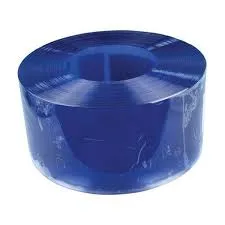- Afrikaans
- Albanian
- Amharic
- Arabic
- Armenian
- Azerbaijani
- Basque
- Belarusian
- Bengali
- Bosnian
- Bulgarian
- Catalan
- Cebuano
- Corsican
- Croatian
- Czech
- Danish
- Dutch
- English
- Esperanto
- Estonian
- Finnish
- French
- Frisian
- Galician
- Georgian
- German
- Greek
- Gujarati
- Haitian Creole
- hausa
- hawaiian
- Hebrew
- Hindi
- Miao
- Hungarian
- Icelandic
- igbo
- Indonesian
- irish
- Italian
- Japanese
- Javanese
- Kannada
- kazakh
- Khmer
- Rwandese
- Korean
- Kurdish
- Kyrgyz
- Lao
- Latin
- Latvian
- Lithuanian
- Luxembourgish
- Macedonian
- Malgashi
- Malay
- Malayalam
- Maltese
- Maori
- Marathi
- Mongolian
- Myanmar
- Nepali
- Norwegian
- Norwegian
- Occitan
- Pashto
- Persian
- Polish
- Portuguese
- Punjabi
- Romanian
- Russian
- Samoan
- Scottish Gaelic
- Serbian
- Sesotho
- Shona
- Sindhi
- Sinhala
- Slovak
- Slovenian
- Somali
- Spanish
- Sundanese
- Swahili
- Swedish
- Tagalog
- Tajik
- Tamil
- Tatar
- Telugu
- Thai
- Turkish
- Turkmen
- Ukrainian
- Urdu
- Uighur
- Uzbek
- Vietnamese
- Welsh
- Bantu
- Yiddish
- Yoruba
- Zulu
PVC Sheet Roll for Versatile Applications in Home and Industry
Understanding PVC Sheet Rolls Versatility and Applications
Polyvinyl chloride, commonly known as PVC, is one of the most widely used plastic materials in the world. Its versatility and durability make it an ideal choice for a myriad of applications. Among the various forms in which PVC is available, PVC sheet rolls stand out due to their practicality, ease of use, and adaptability. This article delves into the characteristics, benefits, and applications of PVC sheet rolls, highlighting why they are favored in numerous industries.
Characteristics of PVC Sheet Rolls
PVC sheet rolls are manufactured through a process that involves the extrusion of PVC resin, resulting in flexible and durable sheets. They are available in a variety of thicknesses, widths, and colors, making them customizable to fit specific needs. The sheets can be either rigid or flexible, providing options based on the structural requirements of a project.
One of the most notable features of PVC sheets is their resistance to various environmental factors. They are inherently resistant to moisture, chemicals, and UV light, which not only extends their lifespan but also ensures that they maintain their aesthetic appeal over time. Additionally, PVC sheets are lightweight, making them easy to transport and handle, which is an essential factor in many applications.
Benefits of Using PVC Sheet Rolls
The benefits of PVC sheet rolls are manifold. Firstly, they are cost-effective. Compared to other materials, PVC offers a lower initial investment, and its durability means that maintenance costs are reduced over time. Secondly, the ease of fabrication allows for efficient processing; PVC sheets can be cut, welded, and adhered easily, allowing for quick assembly and modification.
Moreover, PVC is a non-toxic material when properly processed, making it suitable for various applications, including those in the food industry. The sheets can also be printed on, allowing for branding and informational graphics, which is particularly advantageous in commercial settings.
pvc sheet roll

Another advantage is the wide range of finishes available. From transparent to opaque and from matte to glossy, the aesthetic options available with PVC sheet rolls cater to diverse design preferences. This versatility is one reason why they are commonly used in both industrial and residential environments.
Applications of PVC Sheet Rolls
The applications for PVC sheet rolls are extensive and varied. In the construction industry, they are often used for cladding, roofing, and flooring, providing weather resistance and insulation. In the signage industry, PVC sheets are favored for creating durable and weather-resistant signs. The flexibility of these sheets allows for intricate cuts and shapes, making them suitable for both indoor and outdoor displays.
In the healthcare sector, PVC sheet rolls are used in the manufacturing of various medical devices and protective equipment due to their cleanliness and resistance to microbial growth. Additionally, their application in the food industry—such as in food packaging and surfaces—is marked by compliance with safety standards, ensuring that they do not compromise food quality.
Furthermore, the automotive industry utilizes PVC sheets for interior components, such as dashboards and door panels, where durability and ease of maintenance are crucial.
Conclusion
In conclusion, PVC sheet rolls are a remarkable innovation in the realm of materials, combining durability, versatility, and cost-effectiveness. Their resistance to environmental factors and adaptability to various applications make them a staple across numerous industries. As technology advances and sustainability becomes increasingly important, the PVC industry is evolving, with a focus on more eco-friendly production methods. This will ensure that PVC sheet rolls remain a sought-after solution for diverse applications in the years to come, continuing to serve as a reliable and efficient material choice.
-
Industrial Strip Curtains - Durable PVC & Plastic Solutions for Industrial DoorsNewsJun.24,2025
-
PVC Curtain Strip – Durable Standard PVC Strips for DoorsNewsJun.10,2025
-
PVC Strip Curtain – Durable & Transparent Plastic Strips for Industrial Use Affordable PricesNewsJun.10,2025
-
Clear Plastic Door Curtains Durable & Insulating VisibilityNewsJun.09,2025
-
Commercial Strip Curtains Energy Savings & Durability for Industrial UseNewsJun.09,2025
-
Anti-Cold PVC Strip Curtains Thermal Insulation & Energy Saving SolutionsNewsJun.09,2025



